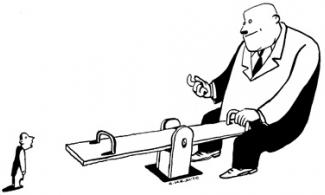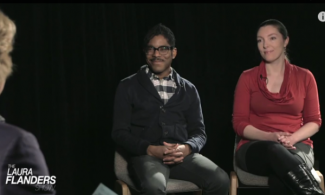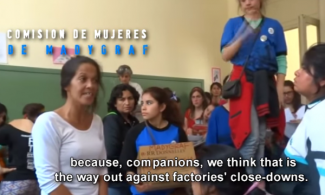
How the Iron Law Extends to Peer Production
Editor's note: Embedded below is a paper that Aaron Shaw and Benjamin Mako Hill recently uploaded to arXiv.org. It addresses an issue we here at GEO are greatly concerned with: how to increase the size of the cooperative movement and the solidarity economy without losing our cooperative values. Carl Ratner's recent article, The Corrupting Role of Corporate Co-ops, details some of the unwholsome effects that result when cooperative enterprises embrace capitalist values. Here, the authors point to evidence that large, complex organizations tend to generate "oligarchy" naturally, even when the systems are premised upon cooperation and collective decision making.
However, the findings presented by Shaw and Hill should not lead us to despair of the possibilities for creating non-coercive, transformative, cooperative systems. They should rather provide us with more information about the many traps and pitfalls faced by collective enterprises, so that we can be alert and prepared when they appear. And perhaps as we learn more about collective organization, we will be able to design our collective systems to counteract and discourage the type of "oligarchy" that Shaw and Hill present below.





Add new comment